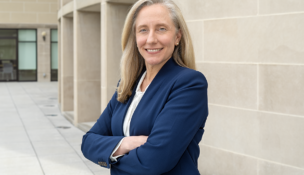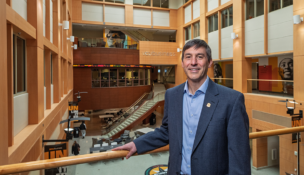Work stoppage
Virginia Business //September 3, 2019//
One of the arguments for expanding Medicaid is that the cost of health care hits the working class hard.
Nationally, more than half of uninsured people struggle to pay their medical bills, harming their credit ratings and their finances.
According to the nonprofit Virginia Health Care Foundation, the average percentage of medical debt in collections in the state is 18%. But in poorer localities, the percentage of patients with overdue medical bills climbs as high as 43%. Medicaid expansion is intended to offset this deluge of debt. A 2017 study by the National Bureau of Economic Research of 5 million credit records in states that expanded Medicaid showed a reduction of medical debt in collection by $3.4 billion in the first two years.
But poor health takes a toll on more than finances, says Deborah Oswalt, executive director of the Virginia Health Care Foundation. Stress over an ill family member or an untreated disease can cause its own difficulties, she points out: “Can you imagine living with that sword of Damocles over your head all the time?”
Last year, the foundation, which supports free clinics and community health centers across the state, received a $250,000 grant from Optima Health to help enroll Virginians in Medicaid. As part of that grant, the foundation has trained about 2,500 people working in various aspects of health care around the state in Medicaid enrollment procedures. The most common words the trainees use to describe their patients’ reactions, Oswalt says, are “relief” and “gratitude.”
Many of those enrolled in Medicaid have complex health problems such as hypertension and diabetes, and a significant number — more than 15,000 — have problems with substance abuse, the state Department of Medical Assistance Services (DMAS) reported this May.
Treating chronic, debilitating health problems like those takes time. That may complicate the next major phase of Medicaid expansion in Virginia: the work requirement.
As part of the compromise that broke Virginia’s firewall against Medicaid expansion, some of the state’s enrollees are supposed to go to work.
Virginia is seeking a waiver from federal authorities to approve its work requirements plan. If implemented, Virginia’s plan would require non-exempted Medicaid enrollees to have some form of work for at least 10 months out of a year or face losing Medicaid health coverage.
However, the Virginia proposal offers a number of alternative ways to meet those work requirements, including job training, job seeking, education and community volunteering. In addition, it would exempt pregnant women and primary caregivers for children or the elderly, as well as people with serious medical conditions.
So far, nine states have received federal approval for work requirements. Four of those states are in the process of implementing the requirements, though three — New Hampshire, Kentucky and Arkansas — have been blocked by a federal judge who called their work requirements overly strict.
Conservatives have argued for years that requiring welfare recipients who can work to do so will spur them to earn their way out of poverty. The Trump administration has pointed out that states’ Medicaid work requirements align with that of other federal welfare programs. A spokesman for the federal Department of Human Services’ Centers for Medicare and Medicaid Services called the Medicaid work requirement an effort “to give states greater flexibility to help low-income Americans rise out of poverty.”
In Virginia, the discussions, legal issues and time it will take to put in place the final agreement means the work requirement is unlikely to take effect before 2021, DMAS officials have said.
This has exasperated conservative lawmakers, who overwhelmingly voted against Medicaid expansion and saw the work requirement as its one saving grace.
“This just isn’t what we were promised,” Sen. Stephen Newman, R-Bedford, told DMAS Director Jennifer Lee during a meeting this spring. “It just seems like it was delay, delay, delay.”
l
















